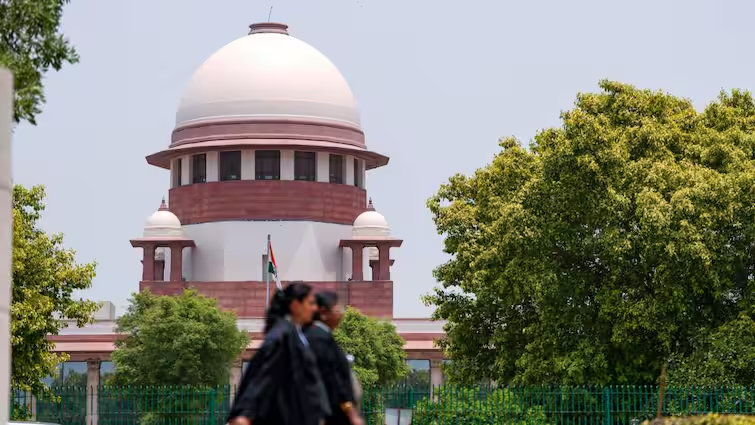The UP Board Examination: An Overview
The Uttar Pradesh Madhyamik Shiksha Parishad (UPMSP), widely recognized as the UP Board, stands as a cornerstone of secondary and higher secondary education in India. Based in Prayagraj, Uttar Pradesh, this autonomous body oversees the academic journey of millions of students across one of India’s most populous states. Established in 1921, the UP Board holds the distinction of being one of the oldest education boards in the country and conducts the High School (Class 10) and Intermediate (Class 12) examinations—collectively known as the UP Board Examinations. These exams are not only a rite of passage for students but also a critical determinant of their future academic and professional paths.
Historical Background
The UP Board was founded under the United Provinces High School and Intermediate Education Act of 1921, during the British colonial era. Its inception aimed to standardize and regulate school education in what was then known as the United Provinces (now Uttar Pradesh). Over the decades, it has grown into a colossal institution, managing over 22,000 affiliated schools and conducting exams for more than 50 lakh students annually. The board’s enduring legacy lies in its ability to adapt to changing educational needs while maintaining its core mission of fostering accessible education.
Structure of the UP Board Examinations
The UP Board Examinations are bifurcated into two pivotal stages:
-
- High School Examination (Class 10):
-
- This exam marks the completion of secondary education and is a foundational step for students.
-
- Subjects: Students are evaluated in core subjects such as Hindi, English, Mathematics, Science, and Social Studies. Additional elective subjects like Home Science, Computer Science, or Sanskrit are also offered, allowing flexibility.
-
- Pattern: The exam typically consists of written papers, with a mix of objective and subjective questions. Practical exams are included for subjects like Science.
-
- Duration: Conducted over several weeks, with each subject allotted a specific date and time slot.
-
- High School Examination (Class 10):
-
- Intermediate Examination (Class 12):
-
- This exam concludes higher secondary education and prepares students for higher studies or vocational pursuits.
-
- Streams: Students choose from three streams—Science (Physics, Chemistry, Biology/Mathematics), Commerce (Accountancy, Economics, Business Studies), and Arts (History, Political Science, Sociology, etc.).
-
- Pattern: Similar to Class 10, it includes written exams and practicals (for Science stream students). The question papers are designed to test both theoretical knowledge and analytical skills.
-
- Significance: Class 12 results are crucial for college admissions and eligibility for national-level competitive exams like JEE, NEET, and CLAT.
-
- Intermediate Examination (Class 12):
Examinations are held annually, typically between February and March, with the 2025 cycle likely in progress or nearing as of February 22, 2025. Results are announced around June or July, following a rigorous evaluation process.
Scale and Reach
The UP Board is unparalleled in its scale. It oversees the education of students in both urban centers like Lucknow and Kanpur and rural hinterlands, bridging diverse socio-economic backgrounds. Exams are conducted in Hindi and English mediums, ensuring inclusivity. In 2024, approximately 55 lakh students registered for the exams (around 29 lakh for Class 10 and 26 lakh for Class 12), a number expected to remain consistent or grow in 2025 due to Uttar Pradesh’s large youth population.
Significance of the UP Board Examinations
The UP Board Examinations hold immense importance for several reasons:
-
- Educational Gateway: High School certification is a prerequisite for pursuing Class 12, while Intermediate results determine university admissions and career trajectories.
-
- National Relevance: The board’s syllabus aligns with national standards (e.g., NCERT), making its students competitive in all-India examinations.
-
- Social Impact: For many students, particularly in rural areas, excelling in these exams is a ticket out of poverty, opening doors to government jobs, scholarships, and professional courses.
Recent Developments and Reforms
The UP Board has undergone significant modernization in recent years to enhance credibility and efficiency:
-
- Technological Integration: Since 2020, the board has digitized key processes. Students can download admit cards and check results online via the official website (upmsp.edu.in). Digital certificates have also been introduced.
-
- Anti-Cheating Measures: The 2024 exams saw stringent steps like CCTV surveillance at exam centers, biometric attendance for invigilators, and GPS tracking of question paper transportation to prevent leaks—a recurring issue in the past.
-
- Syllabus Updates: The curriculum has been periodically revised to align with CBSE and NCERT frameworks, incorporating practical skills and contemporary topics.
-
- Evaluation Reforms: To expedite result declaration, the board has increased the number of evaluators and introduced centralized answer sheet collection hubs.
As of February 2025, preparations for the upcoming exams likely include the release of timetables, registration deadlines, and further refinements to these systems.
Challenges Facing the UP Board
Despite its achievements, the UP Board grapples with persistent challenges:
-
- Exam Malpractices: Paper leaks and cheating scandals have historically tarnished its reputation. While recent measures have reduced such incidents, vigilance remains critical.
-
- Result Delays: The sheer volume of answer sheets often leads to delays in result announcements, causing anxiety among students awaiting college admissions.
-
- Educational Disparities: Rural schools often lack infrastructure and qualified teachers compared to urban counterparts, affecting student performance.
-
- Language Barrier: Though Hindi-medium education is a strength, it can disadvantage students competing in English-dominated higher education or job markets.
The Uttar Pradesh government and UPMSP are working to address these issues through teacher training programs, infrastructure funding, and stricter oversight.
Preparation Strategies for UP Board Students
For students gearing up for the 2025 exams, success hinges on disciplined preparation. Here are detailed tips:
Master the Syllabus:
- Obtain the latest UPMSP syllabus from the official website and focus on high-weightage chapters (e.g., Algebra in Maths, Modern History in Social Studies).
- Use NCERT books alongside UP Board-recommended texts for a strong foundation.
Practice with Past Papers:
- Solve question papers from the last 5–10 years to understand patterns and recurring themes.
- Time yourself to simulate exam conditions.
Leverage Sample Papers:
- The board releases sample papers annually; these are goldmines for anticipating question formats.
Focus on weak areas:
- Identify struggling topics through mock tests and seek help from teachers or online tutorials.
Time Management:
- Create a daily study schedule, allocating more time to challenging subjects while ensuring breaks to avoid burnout.
Practical Preparation:
- For Science students, practice diagrams and experiments meticulously, as practicals carry significant marks.
Stay Updated:
- Monitor UPMSP announcements for exam dates, admit card releases, and any last-minute changes.
The Role of Parents and Teachers
Beyond students, parents and educators play a vital role. Teachers should provide structured revision plans and mock tests, while parents can offer emotional support and a conducive study environment. Collaborative efforts ensure students perform at their peak.
Looking Ahead: The Future of the UP Board
As education evolves globally, the UP Board faces the challenge of staying relevant. Plans to introduce vocational courses, digital classrooms, and continuous assessments (beyond annual exams) are under discussion. With Uttar Pradesh’s demographic weight, the board’s ability to innovate will shape India’s educational landscape.
The UP Board Examination is a monumental endeavor, reflecting the aspirations of millions of students and the resilience of an education system serving a diverse populace. As of February 22, 2025, the 2025 examination cycle looms large, promising another season of hard work, anticipation, and achievement. For students, it’s a test of knowledge and perseverance; for the board, it’s a test of its ability to deliver fairness and opportunity. With the right preparation and systemic support, the UP Board Examinations will continue to be a launchpad for dreams in Uttar Pradesh and beyond.















